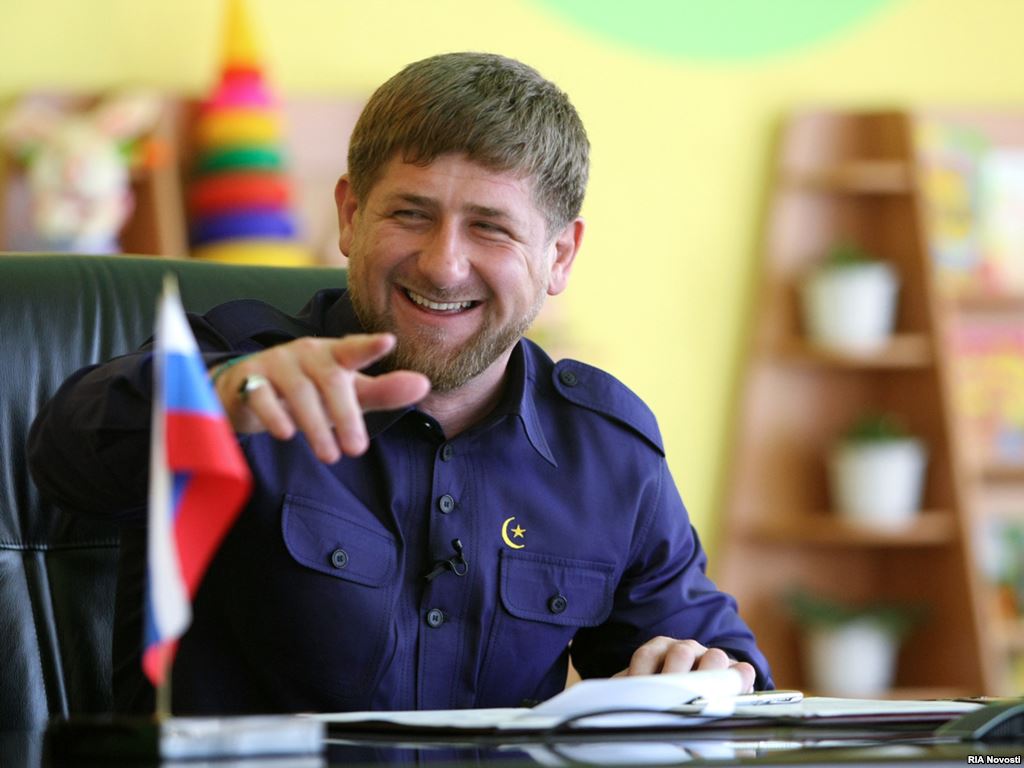
Southern Russia Mobilizes Against Islamic State
Publication: Eurasia Daily Monitor Volume: 12 Issue: 138
By:

Russian news agencies reported that both Russian President Vladimir Putin and Chechnya’s governor, Ramzan Kadyrov, expressed their condolences to the leadership of Iraq for the terrorist attack in Khan Bani Saad, Diyala Governorate. Terrorists detonated a car laden with explosives in the city, killing more than 120 people. The attack took place during the Muslim holiday of Eid al-Fitr (Lifenews.ru, July 18).
Unlike other provincial leaders, Kadyrov routinely issues statements on Russian foreign policy, including proposals to take steps against certain countries. He most frequently criticizes the policies of the United States and other Western countries. It remains hard to tell whether Kadyrov, in issuing statements concerning international affairs, is trying to pave the way for his future career. Whatever the case, he is serious about combatting the so-called Islamic State, which he calls the Iblis State (the State of the Devil) (Gazeta.ru. March 3). The Chechen leader claims the terrorist organization in Iraq and Syria is a creation of the Western security services—a view he recently reiterated on his Instagram account (Instagram.com, July 18).
The subject of the Islamic State is increasingly becoming a reoccurring topic in the Chechen governor’s speeches and actions. On the night of July 15, the republic’s special forces were put on high alert and conducted drills for eliminating a terrorist group. Kadyrov was testing their preparedness for carrying out special operations (Vesti.ru, July 15). The exercises were conducted at a firing range located between the towns Argun and Dzhalka. Kadyrov said he was happy with the performance of his troops: “I evaluate the efficiency, execution of orders and professionalism in dealing with complex combat missions as higher than ‘excellent’ The soldiers conducted a special operation to eliminate notional terrorists and free hostages” (Mk.ru, July 16).
On July 16, Kadyrov again put his troops on alert and held exercises in the area of the mountainous military base near the village of Borzoi (Shatoi district). The special forces learned skills involved in carrying out special operations in a mountainous terrain.
Kadyrov apparently made his decision to conduct military drills for his forces after taking part in a republican law enforcement meeting on July 14. At that meeting, police and government officials discussed the results of the interior ministry’s actions during the first half of 2015 to eliminate the remnants of the armed underground movement, crime prevention, and working with the civilian population (Rg.ru, July15).
Meanwhile, Russia’s federal TV channels reported that the Separate Motorized Rifle Brigade of the Southern Military District, which is based in Chechnya, held exercises in Stavropol region. “According to the plan, infantry units were put on alert and made a 100-kilometer march to a specified area, where they were supposed to neutralize illegal armed groups of an enemy,” Southern Military District’s press service was quoted as saying (Islamnews.ru, July 16). Similar exercises took place in other Russian federal districts (RT, July 16).
Moscow appears to be seriously concerned about the changes taking place within the ranks of the North Caucasian armed Islamists and the unexpected emergence of a branch of the Islamic State (IS) in the region. IS leader Abu Bakr al-Baghdadi declared the establishment of the Velayat Kavkaz of the Islamic State on the basis of the former Caucasus Emirate.
Kadyrov has given reassurances that the Islamic State will not appear in Chechnya: “Those devils have no chances,” he said. “In the Chechen Republic, there will not be any of their bases, branches or even their smell” (Chechnya.rusplt.ru, July 16). However, IS has already appeared in Chechnya: The group under Hamzat Byutukaev (Amir Hamzat), who was a subordinate of Doku Umarov in the Caucasus Emirate, now considers himself an IS loyalist. Of course, Byutukaev’s group has only several dozen members, but it would be foolish to assume it will not find more sympathetic young people who have come under the influence of IS propaganda through social networks on the Internet. IS supporters are dangerous for their unpredictability, their willingness to demonstrate their ties to IS, and their readiness to carry out attacks anywhere, at any time.
Even if there are no more than 100 supporters of the Islamic State in the North Caucasus, that is enough to launch attacks in southern Russia. The military exercises of Russian and Chechen forces in the country’s southwest were designed to combat a potential operation by Islamic State in the North Caucasus. Eight months after the militants in the North Caucasus began switching to IS, the converts have done little apart from attempting to retain their groups. The second half of 2015 will show whether the Russian authorities’ concerns about having an IS branch on their territory are justified or not.




